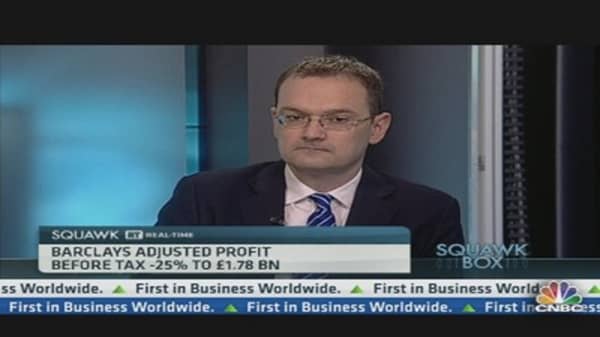The Bank of England's Funding for Lending Scheme (FLS) is like a "pretty bandaid" for the banking sector, one economist told CNBC on Wednesday after the central bank expanded the program.
The BoE announced on Wednesday that it would extend FLS by one year till January 2015 and allow co-operatives and leasing organizations to also access the funding. The news came as Barclays reported weakened earnings and followed a week of gloomy economic news for the U.K. economy.
"This is like a pretty bandaid, the lending program is a bandaid," Erik Nielsen, global chief economist at UniCredit told CNBC. "There is not a lot of demand for credit because ultimately businesses borrow money when they see demand for their products. Lending to the corporate sector lags GDP and you can't put the cart in front of the horse here."
"It's a fundamental problem with demand for credit and it's a fundamental problem that banks are being hammered so they are not particularly willing to take new risks. I bet you today that the number one risk on European banks' balance sheets is not derivatives or funny stuff, it's exposure to small and medium-sized enterprises, unfortunately, and that's because of the macro economics, " Nielsen added.
U.K. banks, operating in a tighter regulatory environment since the financial crisis, have been pressured to continue lending to small and medium-sized business but data from the BoE released in its quarterly report in April showed that the annual rate of lending had stalled and even contracted.
(Read More: UK Banks Need to Raise $38 Billion: Bank of England)
"The annual rate of growth in the stock of lending to U.K. businesses was negative in the three months to February. The stock of lending to both small and medium-sized enterprises and large businesses also contracted over this period. The annual rate of growth in the stock of secured lending to individuals was broadly unchanged," the BoE said in its quarterly report.
The data follows a trend set last summer. Data from the bank showed that although 14 billion pounds was taken from the FLS scheme by British banks between August and December in 2012, the participating banks made fewer loans in the period.
(Read More: If There's a 'War' Against Banks, the Banks Are Winning)






